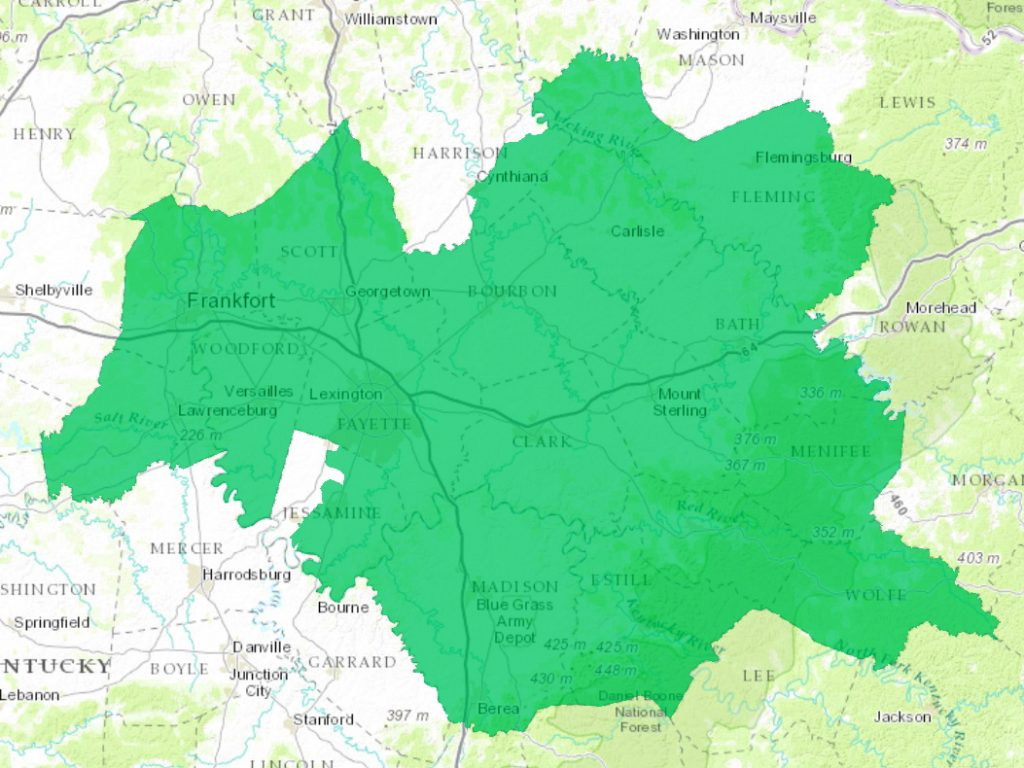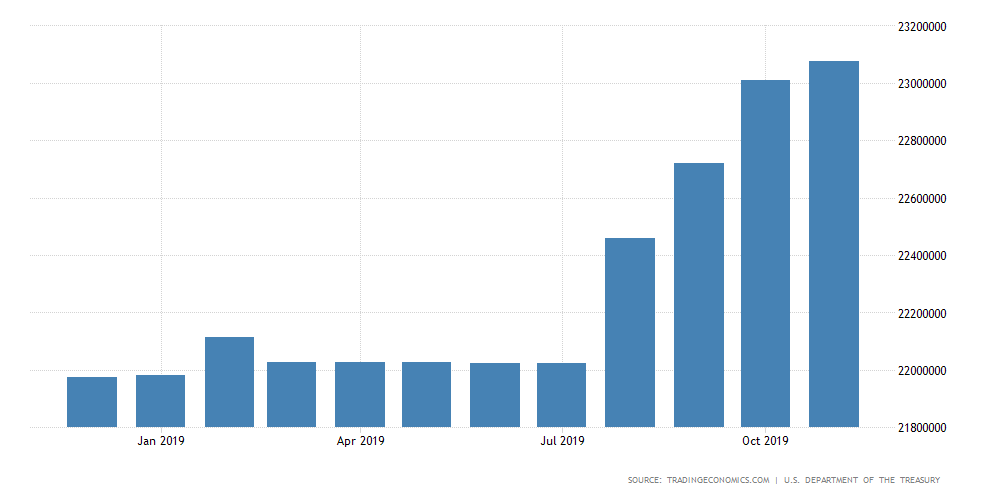Kentucky’s incumbent representative from the 6th District, Andy Barr, just filed for reelection to a fifth term in the U.S. Congress. If you’d forgotten, Barr unseated Ben Chandler back in 2012, and assumed his post in Washington in the 113th Congress of 2013.
Currently Barr is being opposed in 2020 by Democrat Josh Hicks, a Lexington lawyer and 2016 Republican emigré. Other candidates may yet contest the Democratic nomination, but whoever Barr’s eventual opponent turns out to be, it seems useful, at this point, to look back at Barr’s record over the past seven years, in the service of making an informed voting decision in 2020.
A note: this is not “fake news.” All information I present herein is culled from the official legislative record available at Barr’s member page at congress.gov. In addition, since I freely admit that I believe Barr to be an ineffectual legislator and that central Kentucky deserves much better, I encourage you to bypass all secondary news coverage, including this, and read his record for yourself. The interface is simple to navigate, filter, and sort, and you’ll be a more informed voter for having taken the time.

I am primarily interested in examining the legislation that Barr has sponsored. As the Congressional Research Service describes this action, representatives “typically sponsor bills they support,” although at times they “may introduce a bill as a courtesy, such as legislation proposed by the President or a senior Administration official.” In Barr’s time in office, he has sponsored 75 bills.
A quick refresher in civics: once a bill has been introduced to the House of Representatives, it may be debated in committee, then, if the relevant committee deems it worthy, it will be debated in the full House. If the bill earns enough support at that point, it will be put to a vote, and if it’s passed in the House, it’s sent to the U.S. Senate. At that point, the bill may either die a quiet death there, by vote or inaction, or be voted on and passed in the Senate. The bill then is sent to the president, and if he or she signs it, the bill becomes law.
Of those 75 bills Barr has sponsored, exactly two have made it through this process and become law. The first, introduced in 2017 and made law in 2018, renamed the Department of Veteran Affairs health system in Lexington to the “Lexington VA Health Care System,” and renamed two VA facilities in Lexington to the “Troy Bowling Campus” and the “Franklin R. Sousley Campus.” Both Bowling and Sousley were decorated veterans of World War II, with remarkable stories, which are reproduced in the text of the bill and very much worth reading.
The second Barr-sponsored bill to become law, signed by the president just this past July, was a simple amendment to an existing law that set the credit-hour requirement for the VA’s Edith Nourse Rogers STEM Scholarship program, which provides additional GI Bill funding to veterans majoring in STEM fields. Barr’s bill corrected a problem with the law’s original language, in which veterans seeking the scholarship needed to be enrolled in a 128-hour degree program, despite most four-year programs requiring only 120.
These are fine pieces of legislation. The first honors two local war heroes, and the second fixes an issue with scholarship funding for veterans. But here’s the thing: since he joined Congress in 2013, those are the only pieces of legislation Barr has sponsored that actually became law. Of the other 73, only 20 made it into committee deliberations; of those, only 14 ever made it to the Senate; of those, only the two I’ve outlined above passed the upper chamber. We might question, then, Barr’s ability to introduce and pass legislation that benefits all residents of the 6th District—not only our WWII heroes and STEM-studying veterans.
We should also note that his other sponsored bills—those that never crossed the president’s desk, or are still buried in committee—belong almost exclusively to one of two categories: deregulation of the finance industry, or tax cuts for businesses. Whether one believes that bank deregulation, post-2007, is a good thing, or that we need more corporate tax cuts in a time of escalating budget deficits, is a subject for another day, but browsing through the list of 75 bills, what stands out is how few are specific to the needs of the 6th District of Kentucky. We’ve had a couple of VA buildings renamed, but that’s about it. What exactly is Barr trying to accomplish for his constituents?

The cynic would suggest, at this point, that what Barr is trying to accomplish is the building of a résumé that will guarantee him a high-level, handsomely remunerated position in the C-suite of a global bank, once he decides to leave office. Barr seems to be positioning himself as a friend to the financial sector, and by demonstrating how deeply his affection runs, he can follow, as the Washington Post wrote last year, “in a long tradition of entering the private sector after playing a role in significant [financial deregulation] legislation.” Who can blame him? In Congress he’s paid $174,000 annually; he’ll start at several times that number at Chase or Morgan Stanley.
Not sure about this? Let’s look at the bills Barr has co-sponsored. As the CRS puts it, “cosponsorship is generally viewed as a sign that the Member supports the measure.” Basically, if you like a bill, you can put your name on it, and Barr has put his name on 938 bills since taking office, of which 42 have become law. Of those, 16 of them were first debated in—you guessed it—the Financial Services Committee, of which Barr is a member; it was his very first appointment, back in 2012.
Most of those 16 bills authorized the minting of commemorative coins, believe it or not, but more telling are Resolutions 41 and 111, from 2017, both of which nullified aspects of the 2010 Dodd-Frank Act. Dodd-Frank, if you’ve forgotten, was the sweeping legislation enacted to protect us regular people after the global financial crisis, in which big banks overextended themselves and wiped out the wealth of millions of ordinary citizens. Banks and lenders chafed under the new restrictions, and since then legislators such as Barr have repeatedly chipped away at the law. H.J. Res. 41, for example, nullifies a rule requiring oil and gas companies to disclose payments made to foreign governments, while H.J. Res. 111 removes restrictions on the use of binding arbitration agreements by banks and mortgage companies—the agreements that prevent consumers from suing when they feel hard done by.
There are some bright spots, such as the expansion of the Autism CARES Act and giving Larry Doby a Congressional Gold Medal. But in these cases, Barr merely added his name to bills that were obviously the right things to pass. In terms of fighting for his constituents, there just isn’t much there. It’s not that he’s working against us; the problem is that outside of buttering up his future colleagues at multi-national banks and repeatedly voting with the rest of the GOP to gut the ACA, he isn’t doing much of anything at all.
Again, I encourage you to read Barr’s record for yourself, then judge whether he’s done enough to have earned a fifth term in office. Given that the problems of the 6th District in Kentucky extend much deeper than renaming VA buildings and tweaking scholarship-eligibility language—worthy endeavors though they be—I find it hard to make the case that he has.





Leave a Reply